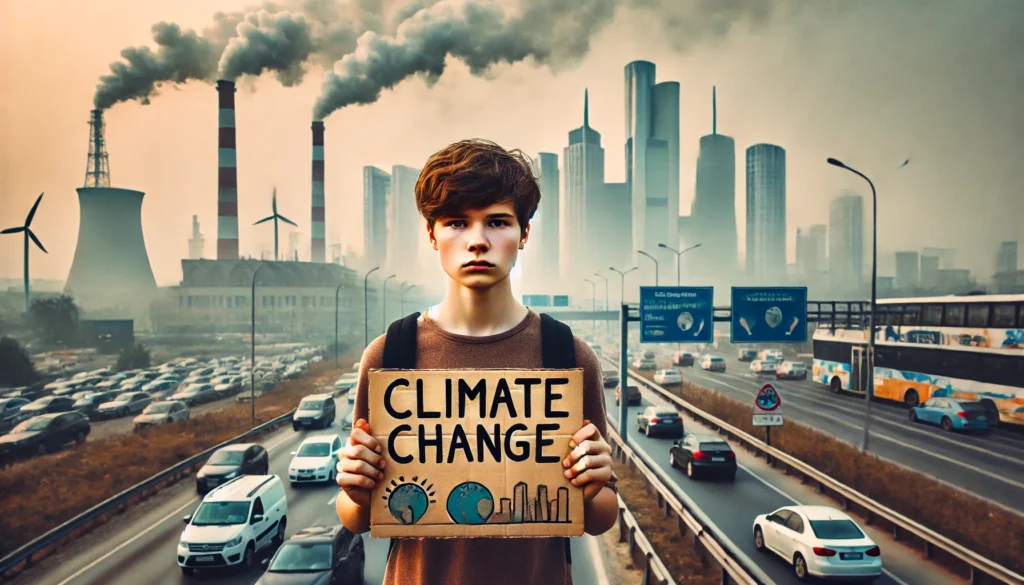Climate change is often seen as an environmental issue. But it’s also having a huge impact on something closer to home: our mental health. From increasing temperatures to a rise in natural disasters, the effects of climate change extend beyond ecosystems and polar bears—they’re affecting people’s minds, moods, and overall well-being. In this blog, we’ll dive into how climate change impacts mental health, why this connection matters, and what we can do to better support those who are feeling its effects.
The Ripple Effects of Climate Change on Mental Health
Climate change doesn’t only bring about extreme weather; it’s causing a whole chain of events that lead to increased stress, anxiety, and depression. From the trauma of natural disasters to the anxiety of an uncertain future, people worldwide are facing new and intense mental health challenges.
Natural Disasters and Trauma
As climate change progresses, natural disasters like hurricanes, wildfires, and floods are becoming more frequent and intense. The emotional toll these disasters take can be severe. Individuals who go through a natural disaster often face challenges like post-traumatic stress disorder (PTSD), anxiety, and depression. For example, in the aftermath of Hurricane Katrina, over 49% of survivors showed signs of serious mental illness, with more than 30% experiencing PTSD. Entire communities, especially those that rely heavily on agriculture or live in high-risk areas, face an ongoing sense of fear, insecurity, and helplessness.
Climate Anxiety and Eco-Anxiety
Eco-anxiety (a type of anxiety related to the fear of climate change) is becoming more common, particularly among younger generations. Many feel overwhelmed by the magnitude of the problem, fearing the worst for the planet and their futures. A study from the University of Bath surveyed 10,000 young people across 10 countries, finding that 75% viewed the future as frightening due to climate change. This anxiety often translates into feelings of hopelessness, stress, and an overwhelming sense of responsibility.

Temperature and Mood
Research indicates that elevated temperatures may contribute to greater aggression and irritability. For instance, research from Stanford University found a direct correlation between hotter days and incidents of violence. People living in areas with prolonged heat waves have reported heightened stress levels, difficulty sleeping, and worsened symptoms of mental illnesses like bipolar disorder and schizophrenia.
Displacement and Loss of Livelihood
As sea levels rise, some communities are forced to leave their homes, losing their sense of place and, often, their livelihoods. Known as “climate refugees,” these individuals face the stress of relocation, the pain of cultural and social disconnection, and the challenge of finding new work. This forced migration can lead to depression, anxiety, and even substance abuse as people struggle to rebuild their lives in new environments.
Impact on Indigenous and Vulnerable Communities
Indigenous communities, who often have strong cultural ties to their land, are particularly affected by climate change. For instance, Alaskan Native communities that rely on the ice for hunting are experiencing climate-induced environmental changes that disrupt their way of life. This loss of cultural practices and sense of identity can lead to severe emotional distress.
Coping Mechanisms and Building Resilience
Given the mental health impact of climate change, it’s important to consider ways to cope and build resilience. Here are some approaches that can help communities and individuals manage the emotional impact of climate change:
Building Community Support Networks:
Strong social networks can act as a buffer against stress. Community-led programs and support groups help individuals share their experiences, which reduces feelings of isolation.
Climate Education and Advocacy:
Engaging in activism and educating oneself on climate action can empower people. It provides a sense of control and purpose, reducing feelings of helplessness.
Mindfulness and Therapy:
Practising mindfulness can help manage stress. Therapy, especially from counsellors specializing in climate-related anxiety, provides a safe space to work through difficult emotions.
Supporting Climate-Related Mental Health Initiatives:
Organizations like the Climate Psychiatry Alliance are working on understanding and addressing the mental health impacts of climate change, offering support to individuals in need. Supporting these efforts, whether through donations or spreading awareness, helps make resources more accessible to those affected.
Conclusion
Climate change is more than an environmental issue; it’s a mental health crisis in the making. From trauma caused by natural disasters to the existential dread of eco-anxiety, it’s clear that the psychological impacts of climate change are just as important to address as the physical ones. As we work to mitigate climate change, let’s also work to support those who feel its effects most deeply. Resilience means more than just enduring hardships; it’s about building a future where everyone has the opportunity to flourish.
Author’s Note:
Climate change is something I care about deeply, not just because of its effects on nature but because of the emotional toll it takes on people worldwide. I hope this blog sheds light on a less-discussed aspect of climate change and inspires compassion for those feeling its effects.
G.C., Ecosociosphere contributor.
References and Further Reading:
- American Psychological Association: Mental Health and Our Changing Climate
- . https://magazines.business-reporter.co.uk/2021/06/10/combatting-climate-change-starts-with-real-time-data/
- The Benefits Of Therapy: Why It’s Worth It. https://www.lifesjourneyky.com/post/the-benefits-of-therapy-why-it-s-worth-it
- How Can Cancer-related Side Effects Impact Mental Wellness? – Hematology and Oncology Associates of Northern California. https://hoaonc.com/how-can-cancer-related-side-effects-impact-mental-wellness/
- How to Make Wellness Your Most Radical Resolution Yet. http://dailynooch.org/index-70.html




